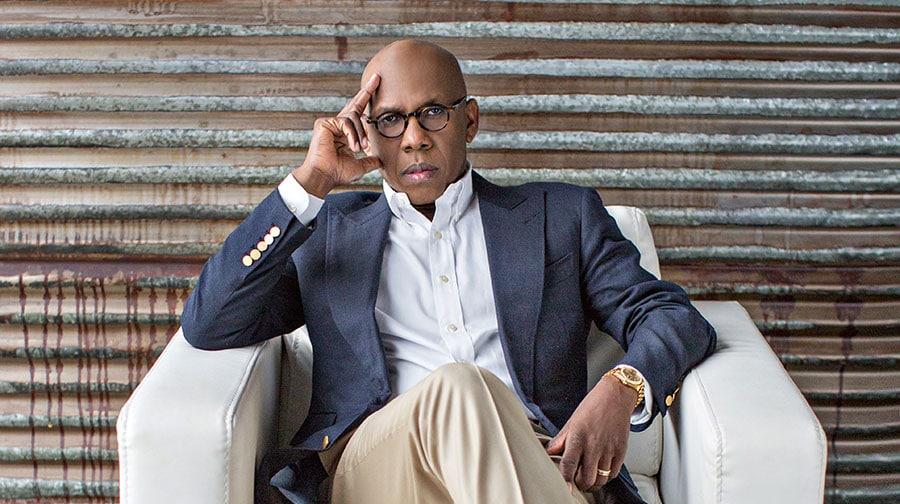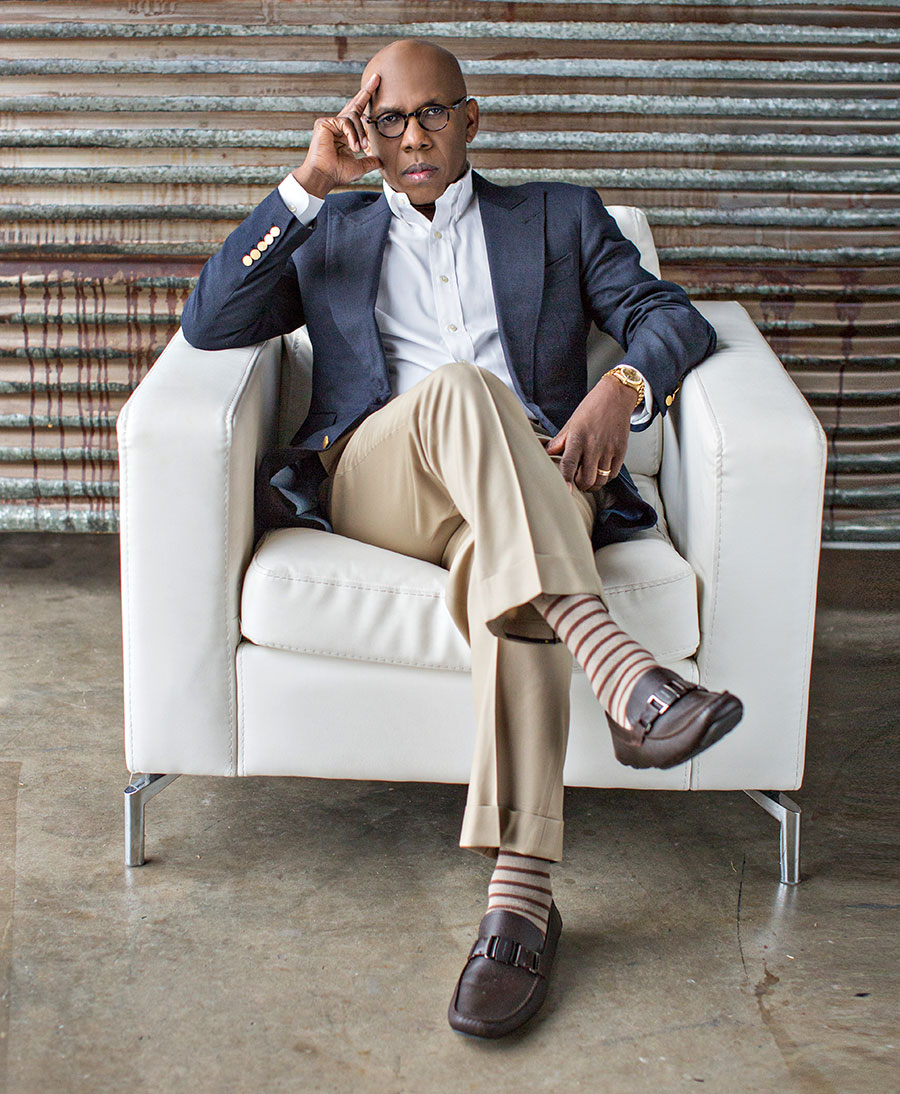Remaining Relevant: How to Have Staying Power in a Time of Rapid Change

Tastes change, priorities change, people change, peoples’ needs change – and, thanks in large part to technology, change is taking place at breakneck speed these days. To thrive and grow in this environment, your organization must do more than keep pace. Your organization must remain relevant. That’s a huge challenge. How will you rise to it?
As the pastor of a congregation with 30,000 + members, I know a thing or two about relevance. A CEO of souls, I oversee three physical locations and a virtual church that reaches around the world. But when I began my pastorate at age 24, Mt. Zion Baptist Church had a smattering of folks in the pews – 175 in all. It was a church with a proud 150-year history, but that was it. Today, it’s thriving.
I put Mt. Zion back on the path to relevance by bringing to bear common attributes of effective leadership –flexibility, resilience, a collaborative mindset, and a willingness to learn – with three other major components that aren’t always so common in highly driven people: 1) comfort with discomfort, 2) deep respect for the past, and 3) a healthy dose of humility.
I believe these approaches have helped me create the relevance that has fed Mt. Zion’s extraordinary growth. I believe they will help you generate relevance in the face of exponential change as well.
Embrace Discomfort
Relevance is elusive for many people because it calls for them to reach beyond traditional drivers of success. Tradition is comforting, but it leads to stagnation. There’s on old saying: “If you always do what you’ve always done, you’ll always get what you’ve always gotten.” I beg to differ. What makes you successful today might make you obsolete tomorrow. Your vision – your end goal – might never change. This is certainly true in the religious sphere. But how you get there can and should.
This requires that you shake things up, moving yourself and everyone else out of their comfort zone. People won’t like it. Meaningful change creates discomfort and tension. Oftentimes, it brings conflict. But change keeps us agile and fresh. This drives innovation, which keeps our customers coming back for more. As the leader, you must strive to be the first person to institute a culture of change; however, if others suggest it, don’t resist. Great leaders create cultures in which they are not the only ones who are change agents. Make room for and elevate those who step up.
But you must also allow enough time for everyone else to catch on and catch up. If the environment in your organization feels like a whirlwind, give change a chance to settle down; otherwise, you run the risk of failure. Everyone needs time to adjust in order to succeed. I’ve seen many leaders take charge and begin implementing new practices without building in the time required for others to adjust, and without respect for the past. As a result, their tenures are tumultuous and brief.
Keep One Foot in the Past
An organization’s history and past successes should inform the current approach. It did, after all, get you where you are. So save what’s necessary and release the rest.
I still minister in a church, I still preach the Bible, I still place my and my congregation’s relationship with God at the heart of everything we do. But my methods have kept pace – and often set the pace – for how Mt. Zion’s members engage in that relationship. Four-hour services every Sunday are no longer the norm. I’ve shortened services, but increased the number of services and created an accessible online platform.
There is no doubt that a few longtime parishioners felt shortchanged at first, but most came around. They grew to appreciate the new vibrancy – the young families, the college kids – that now surrounded them. Furthermore, my team and I always come from a place of respect for the past as we head into uncharted waters. This keeps us grounded, reminding us of what our mission is and will always be.
In this way, the ingredients for relevancy remain in proportion. The same is true with all successful organizations. You must have a strong enough base and rich enough history to be able to understand who you are, then use that as a launching pad propelling you forward.
Be Humble
I so often see businesses that were thriving 20 years ago and are now struggling to stay open. Their leaders thought their way of doing things would transcend time, and success would transfer. They complain that their current failure is because of external factors. But what they should be doing is looking internally.
You should be your toughest critic. Ask yourself what you could be doing better. Allow those around you to be critics. You don’t have to put up with unconstructive whining. But be humble enough to ask those people invested in your vision for their honest appraisal. And refrain from dismissing them as complainers. Rejecting those whose opinions differ from yours robs your of an opportunity to learn how your organization is being perceived, as well as of new ideas that ensure it remains relevant.
Critiques may not be easy to hear, but if you have the humility not to take them personally – to see that, even as a leader you are only one part of a greater team with many important players and points-of-view – you will continue to excel at the helm of an organization that matters, regardless of how rapid the pace of change is today, or will become in the future.

Written by: Bishop Joseph Warren Walker, III is the pastor of the historic Mt. Zion Baptist Church of Nashville, Tennessee and Presiding Bishop of Full Gospel Baptist Fellowship International. In 1992 at the age of 24, Bishop Walker began his pastorate at Mt. Zion with 175 members, which has grown to over 30,000, and continues to grow at a phenomenal rate. He’s the author of the newly released book called No Opportunity Wasted: The Art of Execution.
Have you read?
Rich List Index: The World’s 100 Billionaires; Meet The Richest People On Earth.
World’s Top 20 Largest Gold Producing Countries: China, Australia, Russia, and The US Tops Again.
Must Visit Luxury Travel Destinations For 2018.
Top CEOs And Business Leaders On Twitter: You Should Be Following.
20 Best And Safest Countries To Study Abroad In Europe For International Students, 2018 Ranking.
Bring the best of the CEOWORLD magazine's global journalism to audiences in the United States and around the world. - Add CEOWORLD magazine to your Google News feed.
Follow CEOWORLD magazine headlines on: Google News, LinkedIn, Twitter, and Facebook.
Copyright 2025 The CEOWORLD magazine. All rights reserved. This material (and any extract from it) must not be copied, redistributed or placed on any website, without CEOWORLD magazine' prior written consent. For media queries, please contact: info@ceoworld.biz








